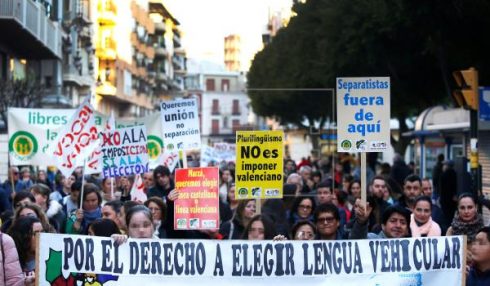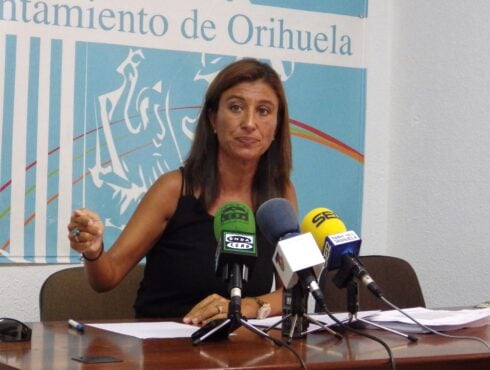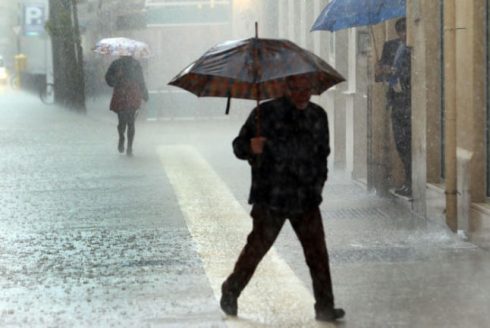SPANISH is the second most-widely spoken language in the world – yet it’s under threat of ‘elimination’ in its own homeland.
Hablamos Español, Spain’s only organisation committed to the defence of the national tongue, fears implementation of the controversial Ley de Plurilingüismo (Multilingualism Law) will effectively remove Castellano from the Valencian Community education system.
Protests against the law, due for roll-out across regional secondary schools in 2020, drew more than 15,000 to the streets of Orihuela in January – while the organisation will continue to hold public debates at the end of February to fight for change.

“The Valencianisation of the education system is part of a political project,” Gloria Laro, the president of Hablamos Español told the Olive Press.
“They have already rolled out the Multilingualism Law in primary schools, and will progressively eliminate Spanish as a language of instruction in the Valencian Community.”
The Law, approved in April 2018 under education councillor Vicent Marzà Ibáñez, seeks to abolish rules that segregate students into complex Valenciano-speaking and Castellano-speaking streams – many times within the same school.
Schools will now have to decide individually in what language to teach all their students, keeping at least 25% of classes in Valenciano, 25% in Castellano and 25% in a foreign language such as English.
In practise, however, this has seen primary schools wrangle the system to teach every class in Valenciano except Spanish Language, Physical Education and Religion – in the case of one child reported in Las Provincias last September.
Gloria added that regions such as the Vega Baja ‘do not speak Valenciano’ meaning that, when the Law is enforced across secondary schools in September, a final-year student could be forced to learn a ‘natural science’ in a completely foreign tongue.
“If you are an English-speaking expat, it’s even worse,” Gloria said.
“You are probably thinking it’s fantastic your child can learn the second most-widely spoken language in the world at school – and then all they learn is Valenciano.”
A 15-year-old student in Javea, on the Costa Blanca, told the Olive Press his chances to get a job outside of Valencia are ‘difficult, if not impossible’, after being forced to study in Valenciano due to the lack of a Castellano-speaking stream at his school.
“I fear the younger generation below me will have an even lower level of Castellano, and this will restrict their opportunities in life,” David (not his real name) said.
Gloria added the public debates – in Valencia and Alicante on February 28 and 29, respectively – will seek to ‘revoke’ the Multilingualism Law in entirety.
“We want a law to be passed that guarantees we will be able to choose the national language of Spain as the language in which our children learn,” she said.
Her organisation maintains the politicisation of language is part of a wider ‘separatist’ project that threatens the very Spanish nation.
Click here to read more Costa Blanca News from The Olive Press.









